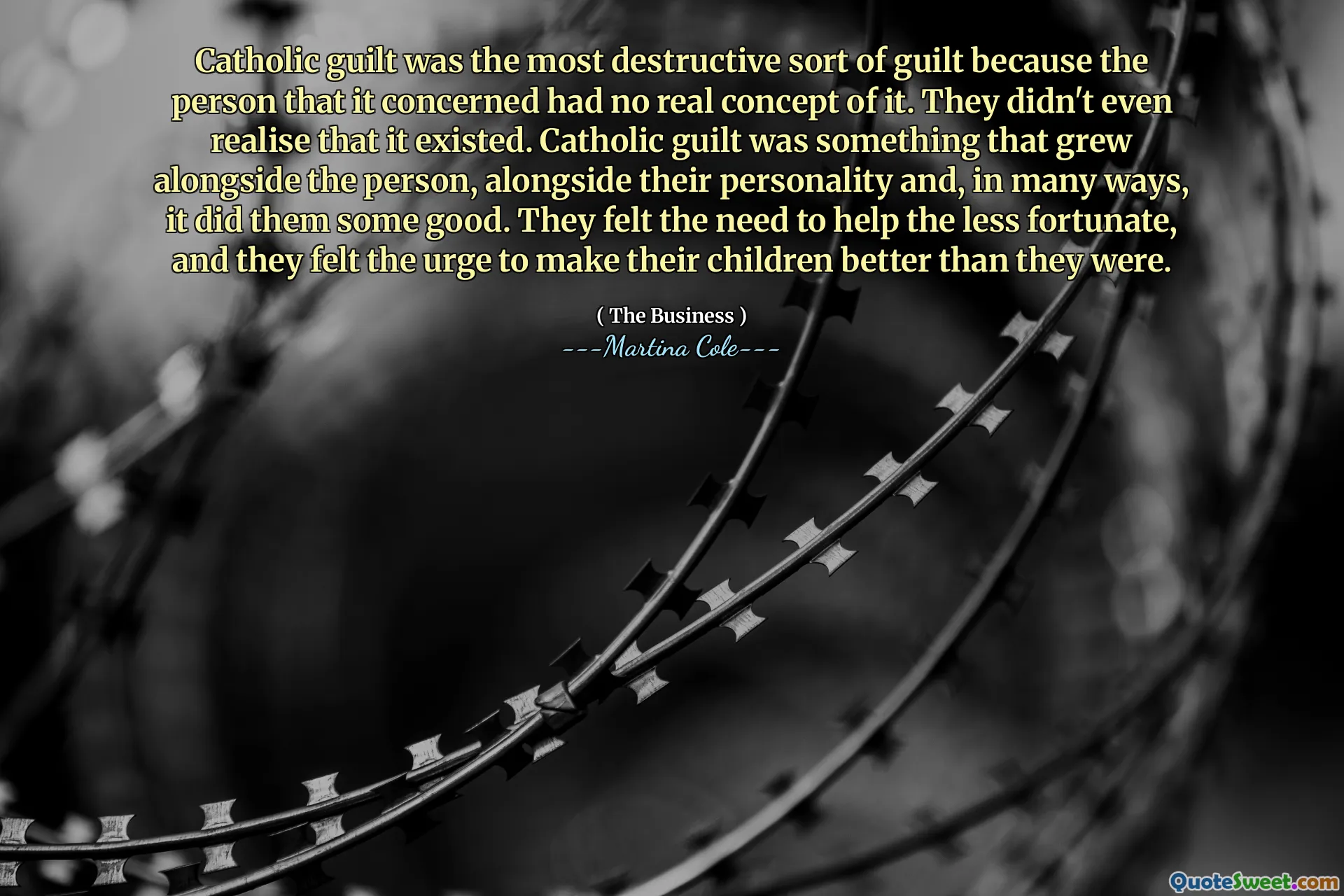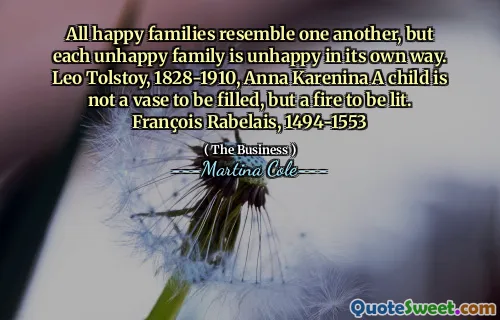
Catholic guilt was the most destructive sort of guilt because the person that it concerned had no real concept of it. They didn't even realise that it existed. Catholic guilt was something that grew alongside the person, alongside their personality and, in many ways, it did them some good. They felt the need to help the less fortunate, and they felt the urge to make their children better than they were.
Catholic guilt is portrayed as a particularly damaging form of guilt because those affected often remain unaware of its existence. This guilt develops over time, intertwined with the individual’s personality, and can foster certain positive traits. For instance, it instills a sense of responsibility towards helping others and motivates individuals to improve the lives of their children.
While this type of guilt may lead to beneficial behaviors, it also suggests an internal struggle that the person does not consciously recognize. As it evolves with the individual, Catholic guilt can shape their identity and influence their decisions, making it a complex emotional experience.











